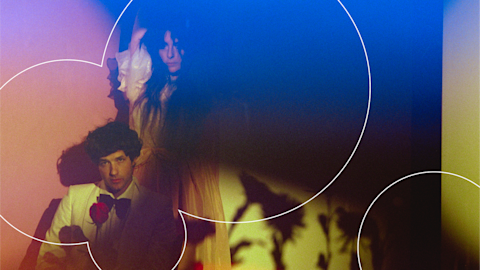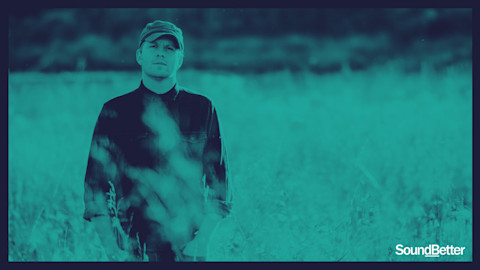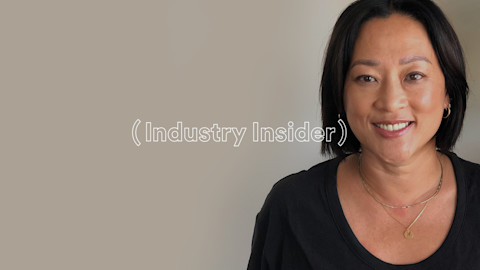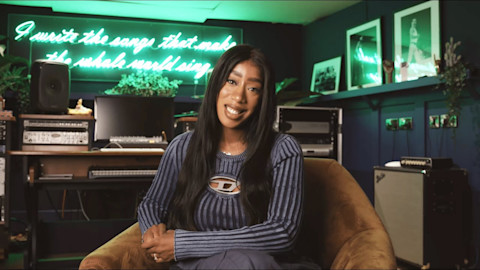You probably know Double Denim Records as the independent upstart that introduced you to acts like Empress Of, Outfit, and Kero Kero Bonito. However, if you deep dive into the label's back catalog there's 10 years worth of weird pop music sound to submerge yourself in. This includes surprises you wouldn't necessarily associate the London institution with, like a couple of features from electro-pop star Charlie XCX and a Fabiana Palladino record produced by electronic soul singer-songwriter, Sampha.
Label founders Jack Thomas and Hari Ashurst-Venn's obsessive and earnest desire to mine for, share and, spread music they discovered in the corners of the internet has always been at the center of the label. In fact, when asked about the inceptive idea that led to the launching of Double Denim Records, Thomas casually admits, "We just thought, we'll try and do one."
Here, Thomas shares how, 10 years into its inception, the label remains enthusiastic about releasing what they once referred to as "crucial pop music in times of clickbait."
Building Good Credit
Unlike most record label origin stories, this one started with banter in between shows at an art gallery, peculiar Tumblr posts, and an oft-used credit card.
Thomas and Ashurst-Venn were working together at London's Orange Dot Gallery, passing their time with a playlist culled together from music they found on obscure Tumblr blogs. Motivated by the wide range of undiscovered music those blogs unearthed, they decided to create their own. But unlike their contemporaries, the playlist requirements for the Double Denim blog were intensely strict. They made it their mission to only highlight songs listeners couldn't hear anywhere else.
"The brief was to find things online that had almost no plays at all. It's got like 10 or 20 plays on Myspace, SoundCloud, or wherever," Thomas reminisced. "This was obviously pre-streaming as we know it now. Then we'd post about it and we might add a paragraph kind of unrelated to the music, really. Not a blog in the usual sense, but just kind of some random paragraph about something we found on Wikipedia."
The off-kilter posts and elusive music struck a chord with listeners and readers. As time passed, they noticed an uptick in reposts from the same blogs that had initially inspired them to start their own. Then popular publications started sharing their finds regularly, their tracks consistently landing on Pitchfork's homepage.
"We thought, 'maybe we've got a good ear to do this kind of thing.' It was kind of the first foray into doing any kind of A&R [work]."
Leveraging their joint musicality (Ashurst-Venn was making and playing music at the time, and Thomas was Djing), they decided to pivot Double Denim the blog into Double Denim, the record label.
"At the time, a lot of labels, particularly the U.K. labels, we're doing lots of 7-inches. We thought, 'let's just find something and we'll put a 7-inch out, put it on my credit card, see how we get on' and that was it. That was the start. Luckily we sold-out of those 7-inches, which meant we could do another one. So, it went back on the credit card."
That wide-eyed optimism paid off, and they realized people were willing to pay for the tangible manifestation of what they initiated with the blog.
"Doing the 7-inches was quite an important thing because it was making a physical product. I remember when we made the first one, and we managed to sell a few to Rough Trade in London. It's a really great experience going down and seeing a record on a pedestal. Those first early 7-inches were such good fun."
Another hit of confidence in their vision came by way of a feature in the NME.
"A friend of ours in the art gallery took a picture of us in the laundromat across the road from the gallery, trying to look cool. I think that was probably the moment that it felt like something real."
Looking back, Thomas agrees that he and Ashurst-Venn were not only in the right place at the right time, but that their mindset when it came to taking creative risk made starting a record label with the swipe of a card feel not only realistic but practical.
"We were putting on art shows and putting on events [Hari] was making music at the time, and I was still DJing a little bit. [In your] early twenties, you just don't think about things that much do you, when you're there? It's good. I wish I could kind of bottle that spirit because I think the older you get, the less you kind of just throw yourself into these things."
![Double Denim Records founders Hari Ashurst-Venn and Jack Thomas by Sonny Malhotra]()
Double Denim Records founders Hari Ashurst-Venn and Jack Thomas by Sonny Malhotra
Bridging Sounds
Though their artists have always sloped towards pop, the label hasn't pigeon-holed itself or its roster with rigid genre requirements. That being said, there is still a thread that links all of it together.
"If you had to nail it down to one thing, I think looking back there is a sound," Thomas agrees in regards to the music they've released. "I think when you've listened to everything in one go, which I have been doing because of the 10 year anniversary, and kind of looking back a little bit more, it does all kind of hang together. Which it really shouldn't because you've got bands like Outfit that are making indie music, really amazing music, but then you've got KKB that are making sort of bilingual pop-rap, and so there shouldn't be a bridge between the two things, but there is."
Thomas realizes that the aforementioned common thread is a particular discernment of taste and proliferation of a sound that only he and Ashurst-Venn are the conscientious arbiters of.
"I think because the label is quite a personal thing for me and Hari, and our tastes meet in the middle somewhere, [the sound] is just that meeting point. It becomes something quite personal because it's two people's quite unique tastes meeting somewhere, which is quite hard to find."
As elusive and perplexing that sound may be to describe, they do know when they've found it. Their A&R methodology may have evolved from their original days of scouring the internet, competing for who could find the best, most obscure track, but the ethos of following their ears and instincts still occurs naturally.
"We get an awful lot of inbound demos now, which is really good, and the quality is quite high as well, so we find quite a lot of stuff that way. [Before] it was a lot of friends of friends that we worked with, especially within the New York set that we worked with. Sam [Owens] of Celestial Shore was a friend of Lorely [Rodriguez] in Empress Of. Spencer Zahn—who we later released and who has a new record out on Cascine—was in Lorely's band. We found this nice spot within Brooklyn, and they were friends with Body Language, who we also released. We did have probably a couple of years where we had this network, which provided lots of releases."
They still haven't disregarded what got them here in the first place, though. They still find time for the fine-tuned treasure hunting that leads to discovering the next gem.
"Occasionally, we'll both go on Bandcamp and the internet more widely and find stuff. That's always a kind of surreal experience because you just strap yourself in, have about 73 tabs open, hit the internet, and try to find stuff, which is how we started the label, so it always feels quite nice."
Their most recent incursions "inside of the internet" landed Double Denim a couple of releases that are slated for release next year, and they're still successfully finding artists that fit their distinct bill.
"We're working with a new artist called Stella Emmet. She's probably the closest thing I've come across for a long time that encapsulates that kind of left-of-center pop thing we try to do."
Charting the Future
Forecasting the future of the music industry can feel like a daunting task in this day and age, especially with the impact of Covid-19 paired with recent protests and civil unrest. Topics of equality and diversity have moved to the forefront of discussion while the industry grapples with the best ways for artists to fund their careers while using their platforms for good. For their part, Double Denim Records hopes that shining a light on and giving space to underrepresented artists is a move in the right direction.
"From an industry point of view, we've probably supported a disproportionately high amount of female and bilingual artists for the amount of releases we've done. It's never really been a question for us as a label. If you find artists that you think are underrepresented, you need to try and help change that. In some way, that's certainly what we try and do. I think the more that there's a culture for that kind of thing, the better. Especially in the broader sense when the industry is struggling with not being able to play shows, not being able to travel, all of those things that hit artists. I think if you like it, share it, try and support it as much as possible."
Although it's harder now to find a track with zero plays on the web, Thomas is optimistic about how the internet has made the democratization of music possible for independent artists and what that means for their ability to have autonomy over their careers while reaching wider audiences.
"Having some sort of platform, even if it's just a small indie label to put music out, is actually a quite crucial thing. We started when there weren't as many platforms around. I think everybody kind of has that now. Everybody has a voice and has a platform, which can go wrong sometimes, but I think it's a force for good, more generally. I think artists are on the way to having a bit more ownership of what they do, which is good. We've encouraged that as much as possible."
—Erica Campbell







